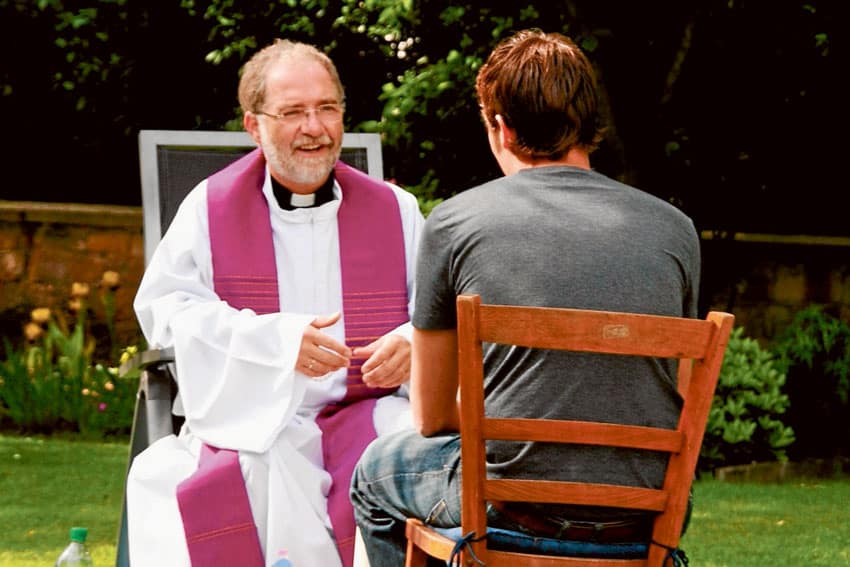
The Royal Commission Into Institutional Responses to Child Sexual Abuse sat for the last time on 14 December last year.
In his final address, Justice Peter McClellan (the Royal Commission’s chair) had this to say: “It is important to remember that, notwithstanding the problems we have identified, the number of children who are sexually abused in familial or other circumstances far exceeds those who are abused in institutions.”
The warning that child sexual abuse outside of government, religious or secular institutions far exceeds such crimes within institutions has been essentially overlooked in the wake of the Royal Commission’s report.
Instead most of the reporting about child sexual abuse following the Royal Commission turns on the recommendation that it should be a criminal offence for a priest to fail to report an admission of child sexual abuse heard in a religious confession. The Catholic Church teaches that priests who hear confession from penitents confessing their sins are bound to absolute secrecy. This is termed the “seal” of confession.
Following the Royal Commission’s recommendation, South Australia, the Australian Capital Territory and most recently Tasmania have taken steps to remove the seal of confession. It is likely that Victorian and Western Australia will follow suit.
What will be the impact of such legislation? Almost certainly zero. There is a theory that Catholic priests confess the sin of pederasty to other priests and then, protected by the seal of confession, go out and offend again. However, the former Catholic priest and notorious pedophile Gerald Ridsdale told the Royal Commission that he never went to confession.
There is no credible evidence that any pedophile in Australia has confessed child sexual abuse to a priest. Pedophiles are notoriously secretive and devious. They are not into confession, within or outside the confessional. Even if this was not the case, why would a pedophile confess to a priest knowing that the priest was bound to report what he heard to authorities?
Archbishop Julian Porteous of Hobart, a traditional conservative Catholic, has spoken out against his priests being forced to break the seal of confession. So has the Jesuit priest Frank Brennan — who is less conservative than Porteous and who voted Yes last year in the same sex marriage survey. Interviewed on The Drum last June, Carolyn Quadrio, Associate Professor in Psychiatry at the University of New South Wales, supported Father Brennan. She said that “from the point of view of a psychiatrist, I think that people don’t generally go and tell the priest what they’re doing”.
Writing in the Mercury, Angela Sdrinis backed the proposed Tasmanian legislation (Talking Point, 31 October). She said “Some might say, however, that the incidence of child sex abuse in the Catholic church is so great simply because they are allowed to get away with it.”
This is pure mythology. The Catholic Church was the first institution which addressed the crime of child sexual abuse. It did so with the establishment of the Melbourne Response in the archdiocese of Melbourne in 1996 and in all other archdioceses and dioceses with the creation of Towards Healing in 1997.
There has been very little such offending in the Catholic Church over the past two decades. In other words, clerical child sexual abuse by priests and brothers is essentially an historical crime. Evidence presented to the Royal Commission by counsel assisting Gail Furness SC indicated that the vast majority of such crimes by Catholic clergy took place between 1950 and 1989 with most in the 1970s.
In her Mercury article, Sdrinis expressed concern about the Catholic Church’s Canon Law with respect to Crimen Sollicitationis (the crime of solicitation with respect to priests). Such teaching has no application in the Supreme Court of Tasmania or any other Australian jurisdiction.
Without question, past child abuse by some Catholic priests and brothers is a blight on the church. Even if, on a per capita basis, evidence before the Royal Commission indicated that children in Catholic institutions suffered less than in other religious institutions. There are no comparable figures for government and secular institutions.
Government legislation to remove the seal of confession will have no impact on child sexual abuse. But it will distract from a real and present danger — contemporary child abuse in families and communities.
This article first appeared in The Hobart Mercury.
